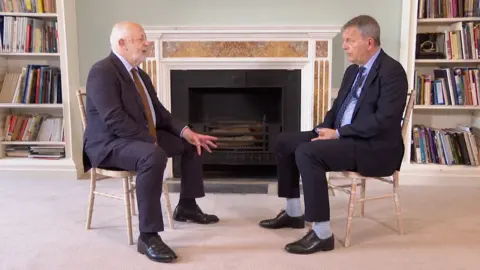Gaza in Crisis: Humanitarian Challenges and International Responses
Gaza remains at the forefront of global concern as its population faces unprecedented hardship. Amid a prolonged blockade and ongoing conflict, urgent humanitarian needs have escalated, drawing international attention and debate. This article examines the current situation in Gaza, the impact on civilians, and the responses proposed by key stakeholders.

The Humanitarian Crisis in Gaza
Gaza has long been one of the most densely populated areas on the planet. Recent events have magnified the suffering of its two million residents. According to BBC News, humanitarian aid has been severely restricted, leading to widespread food insecurity and the real threat of famine. Philippe Lazzarini, the head of UNRWA, describes the situation as "massive atrocities" and warns that starvation is spreading, particularly among children and mothers.
The entire population now faces acute food insecurity. The Integrated Food Security Phase Classification (IPC) reports that 22% of people in Gaza are at risk of famine, with tens of thousands at risk of acute malnutrition. These statistics paint a grim picture of daily life under the blockade.
Aid Blockades and Controversial Distribution Plans
Since March, the Israeli government has halted the delivery of most food and medical supplies into Gaza. Officials frame these actions as pressure tactics to secure the release of hostages. Humanitarian leaders strongly disagree, highlighting the severe shortages as a breach of international obligations. The BBC Verify team has shown, through satellite imagery, that new distribution hubs are being constructed across southern and central Gaza. These sites are part of a new Israeli-US aid plan that has drawn sharp criticism from the United Nations and humanitarian NGOs.
The plan proposes that private companies, guarded by security contractors and Israeli troops, operate the hubs. Critics argue it would cut off many vulnerable residents from relief, especially those unable to reach these centres. Oxfam and several UN representatives call instead for lifting the siege and opening established border crossings, rather than creating militarized distribution centers.
International Debate and Accountability
Disputes over responsibility and legal accountability are intensifying. Some Israeli officials openly discuss using the blockade as a lever against Hamas, while humanitarian leaders warn that such tactics constitute a "weaponization" of aid and could be classed as war crimes. The debate has reached the International Court of Justice, where accusations of genocide and systematic destruction are being closely examined. Civilians continue to suffer, with displacement, poverty, and the constant threat of violence shaping daily existence in Gaza.
Looking Ahead: The Need for Coordinated Solutions
Aid organizations, international agencies, and political leaders all agree that Gaza's crisis demands urgent solutions. However, consensus on how to deliver help remains elusive. The urgency grows with each passing week, as humanitarian conditions deteriorate and reconstruction becomes an ever more daunting challenge.
For a deeper understanding of the crisis and the varied international responses, readers can explore:
- Gaza: Israel denying food to Gaza is ‘weapon of war’, says UNRWA chief
- Large sites appear in Gaza ahead of Israeli aid plan rejected by UN, images show
Conclusion
Gaza's humanitarian crisis is a test of global conscience and political will. Addressing the needs of millions requires coordinated action, respect for international law, and a renewed focus on protecting civilian lives. The world watches, and the people of Gaza await meaningful change.